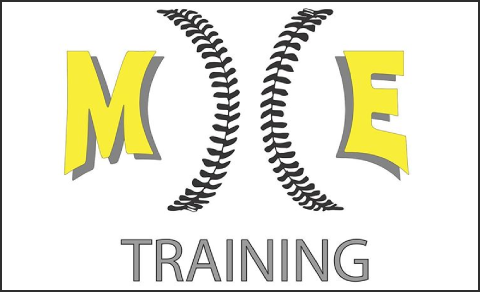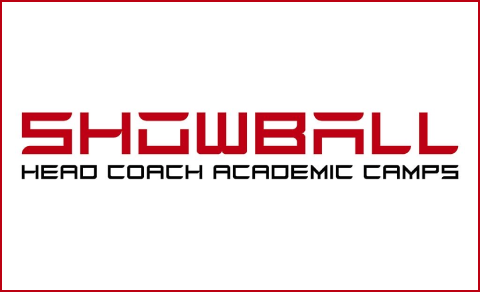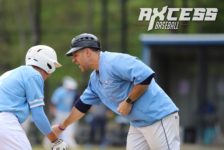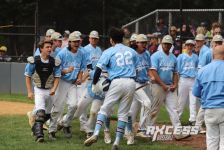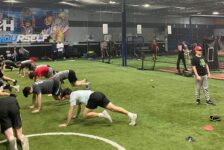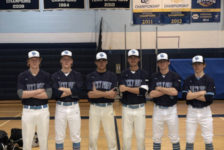In our last edition of College Recruiting 101 we spoke to 5 fathers who experienced the college recruiting with their sons. All five of them went through the Division-I recruiting process.
It came to my attention, however, that all of these were pre-covid, and as we know that has changed the landscape considerably. So I sought out 3 parents that have not only dealt with the college recruiting process, but all three are current coaches that have had to adapt to the post covid era.
The individuals being quoted in this story are Andrew Aschettino, Eric Strovink and Eric Reichenbach. Aschettino is currently an assistant coach at St. Joseph’s University. Prior to that, he was the head coach at Rocky Point for 18 seasons where he led them to their first County Championship in his final season in 2018. Additionally, his son is a 2024 graduate and recently announced his commitment to Northeastern University. Aschettino is a highly-respected coach and he played his college ball at Molloy College and Nassau CC. Strovink currently is an assistant coach at Rocky Point, he also coaches a 2028 college team and both of his sons played college ball at Limestone in South Carolina. He played collegiately at LSU and played pro ball in the Texas Rangers system in 1991. Reichenbach is the head coach of Mount Sinai, which won the Long Island Championship in 2021. Additionally, he coaches summer ball and his son is a 2023 graduate and is committed to Mercy College. He was drafted by the Toronto Blue Jays out of Sachem North HS in 1988 and the New York Mets out of St. John’s University in 1991. He played four seasons of pro ball.
I asked them a series of questions and here’s what they had to say…

What has been the biggest change/challenge to recruiting since 2020?
Andrew Aschettino: Being AJ is a 2024 grad, I don’t think there was as much of a concern for him as there was the 2022s and ’23s, who really had to deal with extra years of eligibility with the program’s current players. To be honest, I went into the season thinking he was a year away from being recruitable. Fortunately, he made some big physical jumps and had a good school and summer season and the doors started to open.
Eric Reichenbach: It’s almost back to normal now since COVID is now an afterthought – especially with athletics. The biggest challenge during these crazy COVID years for recruiting was getting kids seen in person. We would have to send out video upon video of kids to coaches. We still do, but for a couple of years college coaches would have to rely just on these films. Problem with the video is that it’s always edited to where coaches would only see the god things the player does. Either they see a few swings in a cage or a few pitches being thrown on an indoor mound. Maybe a few highlights of game film. But there’s no failure in these videos. And that’s what next level coaches need to see. Unfortunately, baseball is a game built upon failure. How a kid reacts to failure tells you everything you need to know about that player/ Whether he’s resilient, determined to succeed, has a good work ethic, leadership qualities, etc. These are the things you need to see in person over multiple dates to get a good feel about a player.
The other thing I have noticed – even before the covid years – is how quickly the high school coach has been phased out of the college recruitment process. Rarely do college coaches call a HS coach to inquire about a kid anymore. Which just doesn’t make sense to me. Nobody knows these players like their HS coach. We are the ones who watch them 6 days per week during practice and games for months at a time. We see how they are in school, in class. But rarely do college recruiters reach out to get a full understanding of a kid.
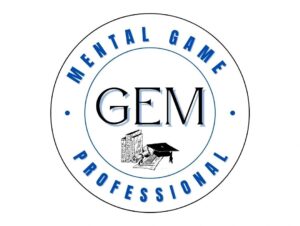
Eric Strovink: The extra year of eligibility given to college athletes and the transfer portal. You have freshman coming arriving on campus competing against 23-24 year olds in some cases. The portal is a two-edged sword. A player can leave should they need to, which is good, but I think the fluidity of the rosters makes things much less stable for the players and the coaches. More players are moving from program to program and it’s become harder to get a feel as to what the needs of the programs will be for a player and program alike.
What events would you say are the best for recruiting purposes?
Andrew Aschettino: He really enjoyed the PBR All State Games up in Cortland. There was some really good talent there and ton of colleges in attendance. The Blue Chip tournaments both here on Long Island and at Diamond Nation were well attended also. PG offered some of the best competition. So those three were very useful. But the best event he personally attended was Northeastern’s Prospect Camp. The coaches were heavily involved and hands on. Very personal. He had a good day, and from there they came to see him play a few times throughout the summer.
Eric Reichenbach: The type of event means everything these days for recruiting. There’s nothing like Perfect Game events, especially the high-end tournaments. We’ll see some college coaches at some of the small, local PG events such as Staten Island or Baseball Heaven tournaments, but playing down in Fort Meyers, FL or Hoover, Alabama or East Coast, Georgia, that’s where the college recruiters are. They are everywhere. And they go there because that’s where the talent is. They want to see kids play, not only on a high-level, but also play against other high-level competition.
Eric Strovink: I guess it depends on the play’s age, the player’s level of talent and if the player is looking to play college ball in the future. Young players (13 and younger) don’t need to do national tournaments to find adequate competition and colleges are not recruiting kids that age. If a player is very talented and has high expectations for their future, facing the top competition becomes increasingly more important each year. The national PG events are heavily scouted alone with regional events being important too. Attending college camps are a must for target schools. If you’re not willing to go to the school’s camp, the school isn’t going to feel you have a real interest in going there. I think the USA Baseball NTIS series was incredible. I would highly recommend players to attend those.

When you were playing ball what was the best way to get exposure?
Andrew Aschettino: The landscape has really changed a great deal. It is so heavily centered around travel and showcase type events. The HS coaches are so much less involved in the actual communication with the college coaches. It’s something that I get, but don’t necessarily totally agree with. I think the HS coaches know, or at least should know, these kids on a more personal level and have lots to offer a college coach. Noto only what kind of player he is, but student. How is he in the community, being a teammate, etc. I think those are some real important traits. Who better to ask than a HS coach who knows the young man half his life.
Eric Reichenbach: That was long time ago. You’re talking about 35 years ago since my HS playing days. There were no videos, instagram social media accounts and online recruitment sites. You just had to play. Back in the late 80s, there were only two dominant local travel teams and if you were the best of the best, that’s where you played. Those organizations were the Bayside Yankees and the Long Island Tigers. Back then, the HS coach played bigger part in the recruitment process.
Eric Strovink: I could list so many things but I’ll mention that social media has become a game changer. You have college coaches finding players from around the country on Twitter. When my sons, Brennan and Kyle, were going through their recruiting, posting videos on YouTube had just become a thing. Nobody was sure exactly what coaches wanted to see, but you uploaded a video and sent the link in an email to college coaches you hoped would see it. It was difficult to know what impressed and didn’t. Today every player has Twitter where coaches actively search for players who include their GPA in their bio and uploaded every kind of video from practice to live games to cover their bases.
What is the biggest misnomer or misconception about the college recruiting process?
Eric Reichenbach: The biggest misconception of this process is that a verbal commitment means the process is over. Nothing is finalized until you sign your National Letter of Intent and you get your acceptance letter from the institution.
Any advice to parents?
Andrew Aschettino: Some advice I would give to parents? A few things. 1. Be patient and don’t rush the process, keep the process as fun as you can. It should be something exciting, not a stressful job. 2. Don’t compare your child to others. By that I mean they all develop physically at different times. That aspect to a large degree is out of their hands. Stay focused on their skillset, and how they play the game, and when the physicality kicks in, it will be fun to watch. 3. Attend events with being realistic with where they are as a player. There is nothing wrong with high goals, but they need to be attainable. 4. Grades and character. On top of the obvious, the better the grades the more opportunities. Coaches want kids with high character. They don’t want liabilities. 5. there is no finish line. It’s always a work in progress.
Eric Reichenbach: Be patient. If your kid is good enough to play in college, it will happen. I’ve seen so many kids commit to a college early only to decomitt or be dropped by a program.Choosing a college is going to be one of the most important decisions a kid will make in their lives. Do not choose an institution just because the name on the front of the jersey is sexy. Parents need to have serious conversations with their kids regarding everything from the size of the school, what college majors and opportunities for internships are available, how far they want to be from home, etc. When my son was going through the process, we took him on a road trip to see many different schools, large major universities, smaller mid-majors, and then tiny rural schools just so he had some background knowledge on each of them so he could make the right decision for himself. Take your time and make informed decision.
Eric Strovink: If we’re talking about choosing a travel team, I would say find out who is coaching your child and do your research on them. Are they knowledgeable? What kind of a culture do they have? Are they honorable? Are they more concerned with outcomes or the process? How often are they going to hold practices? For general advice for parenting a player, the best thing said to me was to be mindful of your conversations when driving home or at the dinner table after the game. Your child will look to you and learn how to respond to whatever transpired during the game. If, as a parent, you take a negative view, start to lay blame on your child, teammate or coaches, this will have an effect on them. He or she might have been told they did something well but could improve on something else and the player was happy with that but suddenly the player gets in the car and hears how this went wrong and that went wrong. The same goes for the coach. The coach had to choose their words and attitude carefully. As a coach and parent, it is something I have to consider after every game. I have to thank Andrew Aschettino for that bit of advice.
Who are some people that have helped you along the way?
Andrew Aschettino: AJ has been fortunate to have so many people help him along the way. He spent his childhood in a varsity dugout. He learned so much from that experience, getting to be around the Frankie Moscatiello’s and Brennan and Kyle Strovinks on a daily basis really let him see how it’s supposed to look. He has had great coaches from his time at Mount Sinai to now Rocky Point. Coach Anzalone, Strovink and Glen are incredible to play for. They are high character guys who get the most out of the person, not just the player. He’s also had some excellent coaches with the Long Island Titans. Tom Downey was instrumental in his recruiting process. He was great.
Eric Strovink: First and foremost, I can’t overstate how important Andrew Aschettino was to children – including my daughter, who was the team manager. “Coach Ash” was my son’s high school coach at Rocky Point. Both of my boys will tell you how blessed they were to be coached by him as would I. Pat Shortt was singularly responsible for their college scholarship offers. Pat was a scout for the Major League Scouting Bureau for 27 years identifying professional talent and helping countless number of players find college placements. He did this for my boys of the goodness of his heart and I’m forever grateful. Larry Izzo, scout for the Mets, has been wonderful to my boys. He’s sent them to numerous pro tryouts, along with Pat Shortt. Jim Galligan, former Head Coach at Lamar University where my son Brennan began his college journey has been an incredible resource of baseball knowledge to all the Strovinks. There have been so many people along the way like Jim Orlando, Tom Caputo, Gregg Sarra and other coaches who have inspired my boys but I believe Keith Osik has a special place in their development in that they grew up knowing him as “Uncle Keith” playing Major League Baseball.

